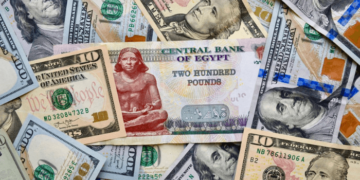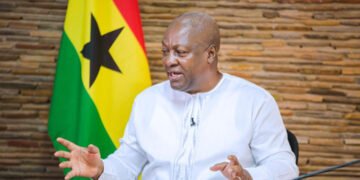Nigeria’s Gross Domestic Product (GDP) recorded a 3.84% real growth rate in the fourth quarter (Q4) of 2024, an increase from 3.46% in Q3, according to the latest report from the National Bureau of Statistics (NBS). This growth reflects the continued resilience of the economy despite global uncertainties.
Nominal and Real GDP Performance
The nominal GDP for Q4 2024 stood at ₦78.37 trillion, while the real GDP was ₦22.61 trillion. The quarterly growth trend showed an improvement from the 3.46% recorded in Q3 2024 and was significantly higher than the 2.98% and 3.19% posted in Q1 and Q2, respectively.
Every year, Nigeria’s GDP grew by 3.40% in 2024, maintaining a steady trajectory from 2.74% in 2023 and 3.10% in 2022. This marks a significant recovery from the pandemic-induced contraction of -1.92% in 2020.
Non-Oil Sector Dominates Economic Growth
The non-oil sector continued to be the major driver of economic growth, contributing 95.40% to the real GDP, while the oil sector accounted for only 4.60%. The non-oil sector’s GDP contribution slightly increased from 94.43% in Q3, further solidifying its dominance.
ALSO READ: NCS CANCELS 4% FOB DECLARATIONS, ORDERS RECAPTURE OF ENTRIES
Among key economic sectors:
-Services accounted for the highest share at 57.36%,
-Agriculture contributed 25.59%,
-Industries made up 17.03%.
-Oil Production and Sector Contribution
Crude oil production in Q4 2024 increased to 1.54 million barrels per day (mbpd), up from 1.47 mbpd in Q3. However, the oil sector’s share of GDP declined from 5.57% in Q3 to 4.60% in Q4, indicating a continued shift towards a more diversified economy.
Sectoral Growth and Economic Outlook
The consistent growth of the services and non-oil sectors highlights the country’s progress in reducing its reliance on oil revenue. The Nigerian government’s ongoing reforms, investments in infrastructure, and policies supporting industrialization and digital transformation have contributed to improved economic performance.
With sustained reforms and improved macroeconomic stability, Nigeria’s economy is expected to maintain an upward trajectory, further strengthening investor confidence and fostering economic resilience.






























































